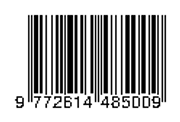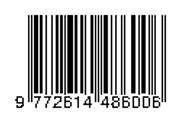
ARCHITECTURE TOOLS MEASURE THE LEVELS OF SALT AND PH OF SEAWATER USING A FUZZY LOGIC-BASED ANDROID
Abstract
The sea has many potentials to be utilized based on the ecological aspects of coastal area. Almost in the coastal areas and islands in Madura are experiencing difficulties in utilizing marine resources. Salinity changes influenced by water osmotic pressure whereas biota living in salt water should be able to adjust the osmotic pressure from its environment. The changes in pH have an effect on the survival of marine organisms as not all saltwater creatures survive with the change of it. From these problems a system of "Designing Measure of Salt Measure and Sea Water pH Using Fuzzy Logic Based Android" is made. Where measuring system is made to prioritize the level of accuracy of changes in salinity and pH value of sea water. So that people could exploit the sea potential based on the condition of the sea water. The reading of sea water condition changes using salinity sensors, pH sensors, and MCU nodes as communication with android devices. Input from the sensor can be sent to the web server and received by android and then processed by fuzzy logic method to get the maximum output. The system can work according to what is expected during 5 days of testing in different locations. The success of this system is 97.3% with a 2.07% failure rate.
DOI : https://doi.org/10.26905/jeemecs.v1i2.2662
Keywords
Sea water, Fuzzy Logic, Internet of Things, Salinity Sensor, pH Sensor
Full Text:
PDFReferences
http://www.bppp-tegal.com/web/index.php/artikel/98-artikel/artikel-pegaraman/171-memilih-lokasi-tambak-garamrakyat [07-11-2017].
DinaMulyaSiltri,Yohandri,ZulhendriKamus,"Pembuatan ala tukur salinitas dan kekeruhan air menggunakan sensor elektroda dan LDR,"Jurnal Sainstek,Vol.VII, No.2,hlm.126–139,2015.
Siti Khodijah, R Rumani M, Unang Sunarya,"Perancangan Dan Implementasi Alat Ukur Untuk Penentuan Kualitas Air Berbasis logika fuzzy Metode Sugeno,” e-Proceeding of Engineering, Vol. 4, No. 2, 2017.
Nur Asyiah Agustina, Nirmalasari Idha Wijaya, Viv Djanat Prasita“Kriteria Lahan Untuk Budidaya Rumput Laut (Eucheuma Cottonii) Di Pulau Gili Genting, Madura,” Seminar Nasional Kelautan XII, Inovasi Hasil Riset dan Teknologi dalam Rangka Penguatan Kemandirian Pengelolaan Sumber Daya Laut dan Pesisir, Surabaya 2017.
Febriana Tirta, Suryono, “Rancang Bangun Sistem Monitoring Kadar Salinitas Air Menggunakan Wireless Sensor System (WSS),” Youngster Physics Jounal, Vol. 5, No. 4, hlm. 227-234, 2016.
Fahmi Mubarok, Harianto, Madha Christian Wibowo, “Pengendalian Salinitas pada Air Menggunakan Metode Fuzzy Logic,” JAVA Journal of Electrical and Electronics Engineeringm, Vol. 13, No. 1, 2015.
Eko Ihsanto, Sadri Hidayat, “Rancang Bangun Sistem Pengukuran Ph Meter Dengan Menggunakan Mikrokontroller Arduino Uno,” Jurnal Teknologi Elektro, Vol. 5, No. 3, 2014.
Agung, M Bangun.2014. Arduino For Beginners. Tugas Akhir Pada Prodi Human Computer Interaction di Universitas Surya. Tanggerang: STKIP Surya.
“USU Institutional Respository (USUIR) ,”[Online ] . Available : http:/repository.usu.ac.id/bitstream/1234 56789/43703/4/Chapter%20II.pdf. [07-11-2017].
Datashet “Sensor Konduktivitas / TDS / Kadar Garam,” www.depoinovasi.com [07-11-2017].
T.Tutojo dan Mulyanto, Edy dan Suhartono, Vincent. Kecerdasan Buatan, Andi Offset. Yogyakarta, 2011.
https://id.wikipedia.org/wiki/Air_laut [07-11-2017].
Athena Karumbaya, Gowri Satheesh, “IoT Empowered Real Time Environment Monitoring System”International Journal of Computer Applications (0975-8887), Volume 129-No.5, November 2015.
Nan Yan, Petra Marschner, Wenhong Cao, Changqing Zuo, Wei Qin, “Influence of salinity and water content on soil microorganisms,” Sciencedirect, International Soil and Water Conservation Research 3, p. 316–323, 2015.
J. a. K. S. G. M. Tan, “A Survey of Technologies in Internet of Things. IEEE International Conference on Distributed Computing in Sensor Systems,” p. 269–274, 2014.
DOI: https://doi.org/10.26905/jeemecs.v1i2.2662
Refbacks
- There are currently no refbacks.
JEEMECS (Journal of Electrical Engineering, Mechatronic and Computer Science) |
Mailling Address:
|










